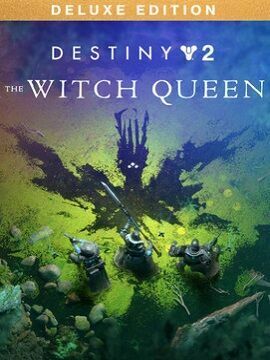
Brand
- Mascot 14.142
- Blaklader 13.042
- Sandvik Coromant 11.078
- ECCO 7.238
- Wonders 6.162
- Moon Magic 5.381
- Routledge 4.587
- Slingsby 4.429
- KENZO KIDS 3.576
- BOSS 3.501
- Gemini Interiors 3.391
- Portwest 3.247
- Velux 2.909
- Nike 2.891
- Nobody's Child 2.763
- Ergomat 2.760
- Life Essentials 2.680
- Air Jordan 2.646
- ELESA 2.562
- Neo 2.535
- Style and Chic 2.434
- M&S Collection 2.252
- Sid & Sam 2.177
- Merkel Designers 2.146
- The Home Maker 2.091
- All Things Good 2.007
- Dune London 2.006
- CRIME LONDON 1.998
- Autograph 1.994
- Kennametal 1.985
- Millennium Furniture 1.941
- Jones Bootmaker 1.930
- Sealey 1.911
- Merlin Deals 1.816
- Direct Imports 1.811
- Tyrell & Tyrell 1.804
- HOBBS 1.773
- Brittle & Co 1.714
- Casper Homes 1.685
- Charlotte Dunes 1.676
- Savings Store 1.664
- Discount Dealers 1.655
- CRC Press 1.652
- Salomon 1.546
- Ray-Ban 1.487
- Decor Base 1.483
- Unbeatable Bargains 1.461
- Festo 1.420
- FootJoy 1.415
- Sia Abrasives 1.410
- Moderix 1.403
- Adidas 1.384
- Adidas Originals 1.373
- Lyle & Scott 1.362
- KARL LAGERFELD KIDS 1.349
- R and M Furniture 1.317
- Seasalt Cornwall 1.310
- Outsunny 1.297
- Magee 1866 1.293
- adidas 1.282
- Phase Eight 1.239
- Maroxe 1.198
- Stormtech 1.172
- Watco 1.168
- Elka 1.167
- MARC JACOBS 1.167
- Oakley 1.147
- Design Hut 1.107
- JW PEI 1.096
- Alcon 1.091
- Helly Hansen 1.083
- Dormer 1.047
- HOMCOM 1.006
- Charles Tyrwhitt 989
- Puma 925
- Callaway 918
- Ted Baker 917
- Michael Kors 909
- JAEGER 908
- Whistles 895
- RO&ZO 879
- Carrera 870
- Zadig & Voltaire 859
- NIKE 858
- Asics 838
- 3M 817
- Genware 817
- Mizuno 810
- Dunlop 809
- Pferd 804
- GANT 783
- Camozzi 782
- LANVIN 748
- Ghost 747
- Medway 735
- Galvin and Galloway 726
- FAG 719
- POLICE 707
- Merrell 702
- Ideal Lux Lighting 699
Colour
- Black 37.764
- White 14.096
- Blue 11.605
- Brown 8.225
- Grey 7.494
- Navy 6.472
- Noir 6.314
- Green 6.109
- Red 5.058
- Pink 4.605
Size
Gender
Merchant
- Zoro UK Limited 129.992
- Home Done 43.663
- Marks & Spencer UK 35.955
- Glisshop uk 15.268
- Kids around 14.291
- LuisaViaRoma.com 12.061
- Alensa.co.uk 11.534
- Kick Game 9.555
- gb.ecco.com 7.752
- Routledge 6.976
- Your Stylish Home 6.969
- Wonders - Official Site 6.162
- AndLight.co.uk 5.407
- Moon Magic 5.381
- Golf Gear Direct 3.986
- Click Golf 3.877
- Belveto 3.873
- Workwear Supermarket 3.767
- Luisaviaroma Css 3.705
- Lime Lace 3.696
- Maroxe 2.619
- Nobody's Child - Cabiro 2.365
- Acorn Fire & Security 2.165
- Suit Direct 2.162
- Slam City Skates 2.153
- Wrong Weather 2.153
- Crime London 1.998
- QD Stores 1.845
- Slam Jam. 1.482
- Lyle & Scott 1.362
- Craigmore UK 1.293
- Magee 1866 1.293
- AWD IT 1.119
- Argento 991
- Bathshack.com 891
- Police Lifestyle 884
- RS Components UK 822
- My-Deco-Shop 814
- Grace & Co Jewellery 773
- Building Plastics Online 736
- Cherry Lane 725
- Seal Medical 703
- Ann's Cottage 697
- Essential Photo 682
- Tosoni Selleria 660
- Epoka AS 636
- Holsper 567
- Fragrance Rich 565
- Mobility Smart 562
- Donaghy Bros UK CSS 558
























